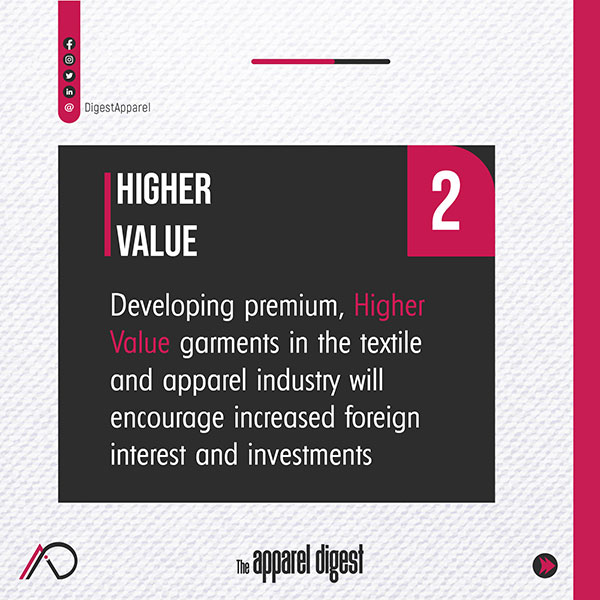Ridan Mehran Mahbub
The resignation of Sheikh Hasina’s government could have a profound impact on Bangladesh’s Export Processing Zones (EPZs) and Economic Zones (EZs), which have been pivotal to the country’s economic growth and industrial expansion during her tenure. The apparel industry, which has a significant presence in EPZs like the Savar and Chittagong EPZs, heavily relies on these zones for production efficiency and export competitiveness. Despite the substantial growth EPZs have experienced under Sheikh Hasina, investors have raised concerns about regulatory and administrative hurdles, infrastructure deficits, and environmental and social challenges. This political transition presents an opportunity for the new government to address these issues and potentially transform these zones into even more robust drivers of economic development. If managed correctly, this shift could be a game-changer for the apparel industry and the broader economy, enhancing investor confidence and sustainable growth.
Economic Achievements Under Sheikh Hasina
Under Sheikh Hasina’s administration, Bangladesh witnessed a remarkable economic transformation. Her tenure was characterized by aggressive industrial policies that prioritized the development of EPZs and EZs. According to the Economic Times, Hasina’s leadership contributed to substantial economic growth, particularly through the expansion of the RMG sector, which has become a global leader in exports. The EPZs played a critical role in this success, providing a conducive environment for foreign direct investment (FDI) and industrial growth.
Potential Impact of Regime Change
The potential impact of a regime changes in Bangladesh, particularly the end of Sheikh Hasina’s leadership, could have profound implications for the country’s Export Processing Zones (EPZs) and Economic Zones, which have been key drivers of industrial growth and foreign investment under her administration.
Over the years, Sheikh Hasina’s government has prioritized economic development, with a specific focus on expanding EPZs and establishing new economic zones to attract foreign direct investment (FDI). These zones have played a critical role in transforming Bangladesh into a global leader in the readymade garments (RMG) sector, among other industries. The current administration’s policies have created an environment conducive to investment, characterized by regulatory support, infrastructure development, and incentives for foreign and local investors.
A change in leadership could lead to significant shifts in this landscape. If the new government continues with the policies established by Sheikh Hasina, the momentum of growth within the EPZs and economic zones could be sustained. This continuity would reassure investors and likely lead to further industrial expansion, contributing to the long-term economic stability and growth of Bangladesh.
On the other hand, a disruption in policy continuity could have adverse effects. A new administration might introduce changes in regulatory frameworks or shift its focus away from industrial development, which could create uncertainty among investors. Political instability, often accompanying such transitions, could further exacerbate these uncertainties, potentially deterring new investments and causing delays or cancellations of ongoing projects.
The investment climate in Bangladesh is particularly sensitive to political stability and policy consistency. A regime change could either boost or hinder investor confidence, depending on how the transition is managed. A government that signals a clear, pro-business stance with a commitment to maintaining or even enhancing the policies that have supported EPZs and economic zones could attract more FDI, thereby accelerating economic growth. Conversely, if the new government fails to provide such assurances, there could be a slowdown in investment inflows. Investors might adopt a wait-and-see approach, leading to stagnation or even regression in the development of these crucial economic zones. In the worst-case scenario, significant policy shifts could lead to a rollback of the progress made in industrialization, affecting not just the zones themselves but also the broader economy.
The impact of the regime change on EPZs and EZs hinges on several factors:
Policy Continuity: If the incoming government maintains or even enhances the existing policies that have supported the growth of EPZs and EZs, the momentum of industrial expansion could continue. This stability would reassure investors and potentially lead to further economic development. The The Business Standard emphasizes that sustained policy support is crucial for the continued success of economic zones.
Regulatory Shifts: Conversely, a new administration might implement different regulatory frameworks or shift focus away from industrial development. Such changes could create uncertainty, affecting investor confidence and potentially leading to a slowdown in investment and industrial activity. This uncertainty could deter potential investors and delay ongoing projects, impacting the overall growth trajectory of the zones.
Political Stability: Political stability is vital for a favorable investment climate. Political transitions can often be accompanied by instability, which might further exacerbate uncertainties in the business environment. The new government’s ability to provide a stable and investor-friendly environment will be critical in determining the future of EPZs and EZs.
Long-term Growth: The long-term growth of EPZs and EZs will depend on how the new administration navigates the transition. A government that demonstrates a clear commitment to industrial development and economic stability could attract more FDI and support the continued expansion of these zones. On the other hand, significant policy shifts or political instability could undermine recent gains and pose risks to the progress made.
Conclusion:
A regime change in Bangladesh could have profound implications for the apparel industry, especially within Export Processing Zones (EPZs) and Economic Zones (EZs), which are central to the sector’s operations. The continuity of investor-friendly policies is crucial for maintaining the industry’s growth and global competitiveness. If the new government sustains and enhances current economic strategies, the apparel industry could continue to thrive, benefiting from stable production, export activities, and ongoing infrastructure development. However, any policy disruptions or shifts in labor regulations could introduce uncertainties, potentially impacting foreign investment, production efficiency, and the industry’s ability to meet global demand. The future of Bangladesh’s apparel industry, therefore, hinges on the new government’s ability to maintain a stable, supportive environment that fosters continued growth and investor confidence.

